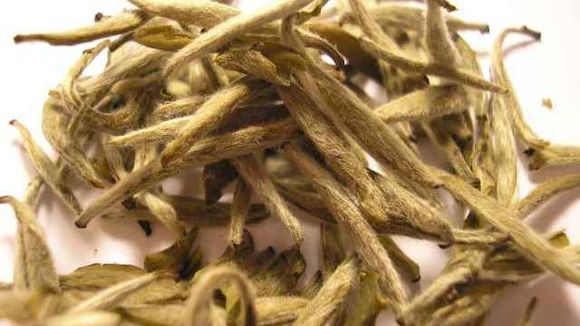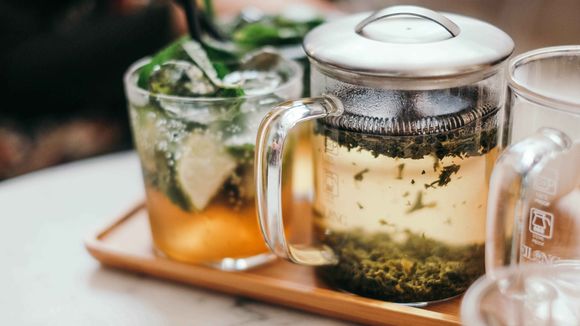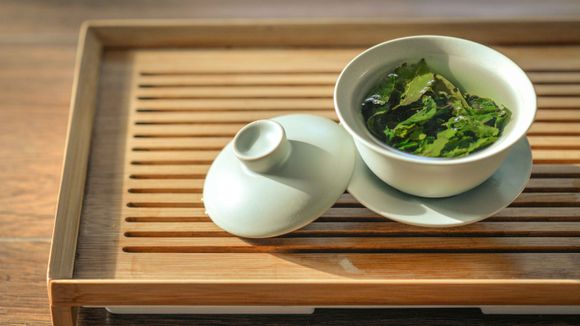Catechins: Nature's Gift in Tea
Catechins, a class of natural compounds, are part of the flavonoids family. They are potent antioxidants known for their ability to combat oxidative stress and inflammation, both of which play a crucial role in cancer development. Green and white tea, derived from the Camellia sinensis plant, are exceptionally rich sources of catechins.
Green Tea's Arsenal Against Cancer
Epigallocatechin Gallate (EGCG): The most abundant catechin in green tea, EGCG has attracted extensive attention for its potential to inhibit the growth of cancer cells. Scientific studies have suggested that EGCG may interfere with various pathways involved in cancer development, making it a formidable contender in cancer prevention.
Polyphenols in Green Tea
Aside from EGCG, green tea contains other polyphenols like epicatechin, epicatechin gallate, and catechin gallate. These compounds collectively contribute to the cancer-fighting potential of green tea.

Photo by Julia Topp on Unsplash
Natural Remedies
Beyond green tea, herbs like turmeric (Curcuma longa), rich in curcumin, and ginger (Zingiber officinale), which contains gingerol, have shown anticancer properties. Incorporating these into your diet can be a tasty and healthful way to boost your cancer-fighting arsenal.
Recipes
Turmeric-Ginger Tea
Ingredients:
- 1 teaspoon grated fresh turmeric
- 1 teaspoon grated fresh ginger
- 1 cup hot water
Instructions:
- Mix all the ingredients.
- Boil for 5 minutes, strain and enjoy the aromatic and healthy drink.
Green Tea Recipe
Ingredients:
- 1 teaspoon of green tea leaves (Camellia sinensis)
- 1 cup of hot water
Instructions:
- Boil water and allow it to cool for a minute.
- Pour the hot water over the green tea leaves.
- Steep for 2-3 minutes for a milder flavor or up to 5 minutes for a stronger brew.
- Strain and savor the healthful benefits!
Botanical Info: Camellia sinensis is the botanical name for the tea plant, the source of green tea, rich in EGCG.

White Tea's Elegance in Cancer Prevention
White Tea Antioxidants
White tea, made from young tea leaves and buds, boasts a delicate flavor and a rich concentration of antioxidants, including catechins. While it may contain slightly lower catechin levels than green tea, its unique profile makes it a valuable addition to your anticancer regimen.
Natural Remedies
Milk thistle (Silybum marianum), renowned for its liver-protecting properties, has also shown promise in preventing certain types of cancer. Its active component, silymarin, exhibits potent antioxidant and anti-inflammatory effects.
Recipes
Milk Thistle Iced Tea
Ingredients:
- 2 tablespoons crushed milk thistle seeds
- 2 cups cold water
Instructions:
- Soak the ingredients for a few hours.
- Strain and serve on ice, garnished with a slice of lemon.

Photo by Massimo Rinaldi on Unsplash
White Tea Elixir Recipe
Ingredients:
- 1 tablespoon of white tea leaves (Camellia sinensis)
- 1 cup of hot water
- 1 slice of fresh ginger (Zingiber officinale)
- 1 teaspoon of honey (optional)
Instructions:
- Boil water and allow it to cool for a minute.
- Add white tea leaves and ginger to a teapot.
- Pour the hot water over the ingredients.
- Steep for 2-3 minutes.
- Optionally, sweeten with honey.
- Strain and enjoy the refreshing elixir!
Botanical Info: Zingiber officinale, commonly known as ginger, is a flowering plant known for its anti-inflammatory properties.
Anticancer Properties in Other Natural Compounds
Resveratrol from Red Grapes: Resveratrol, found in red grapes (Vitis vinifera), has been studied for its potential to inhibit the growth of cancer cells. It's also found in red wine, offering another reason to enjoy an occasional glass (in moderation).
Curcumin from Turmeric: Curcumin, the active ingredient in turmeric, is a potent antioxidant with anti-inflammatory and anticancer properties. It has shown promise in various cancer types, including breast, colorectal, and prostate cancer.

Photo by Towfiqu barbhuiya on Unsplash
Questions and Answers
Q: How can I incorporate more catechins into my diet if I'm not a tea drinker?
A: You can consume catechins through supplements or by adding foods like dark chocolate, apples, and berries to your diet.
Q: Can catechins cure cancer once it has developed?
A: While catechins show promise in cancer prevention, they are not a cure for established cancer. Consult a healthcare professional for appropriate treatment options.
Q: Are there any side effects associated with high catechin intake?
A: Excessive catechin consumption from supplements may lead to digestive issues. It's best to obtain catechins through a balanced diet.
Q: Is there a recommended daily intake of catechins for cancer prevention?
A: There is no specific daily intake, but regularly including catechin-rich foods and beverages in your diet can be beneficial for overall health.
Q: Can herbal remedies like milk thistle and turmeric interact with medications?
A: Yes, some herbs may interact with medications. Consult a healthcare provider before using them, especially if you are taking prescription drugs.









